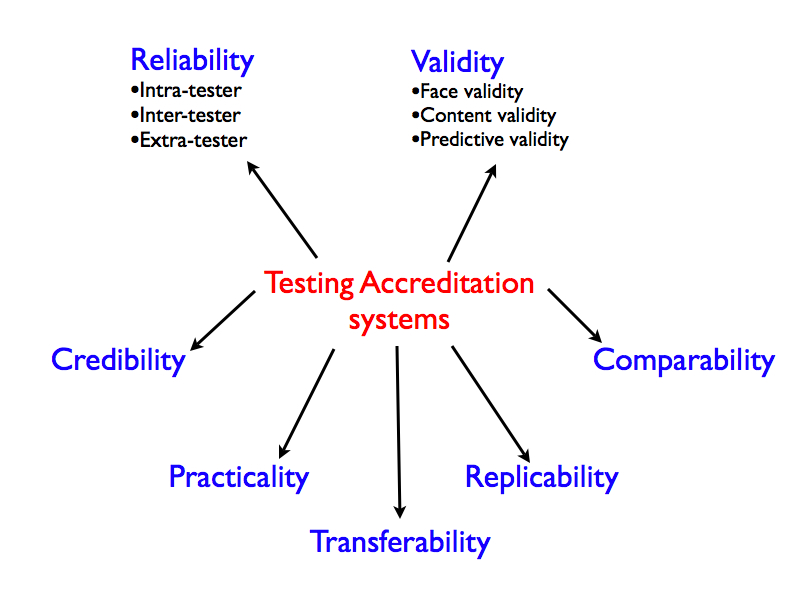OLDaily
by Stephen Downes
October 14, 2008
Steal This Comic

The comic says it all.
Randall Munroe,
xkcd,
October 14, 2008 [Link] [Tags: none]
[Comment]
Open Accreditation - a Model

Graham Attwell jumps on the idea of open assessment (an idea, perhaps, whose time has come).
Graham Attwell,
Pontydysgu,
October 14, 2008 [Link] [Tags: Assessment]
[Comment]
Memories Are Made of This
I continue to be puzzled by the reluctance of educators to embrace a picture of learning that looks even remotely like this: "when we experience something - say riding a bicycle for the first time - a network of neurons in the brain are activated. Then, later on, when we recall that first experience, that same network, or something like it, is activated again." Nothing complicated, no brain-writing or transfer or storage of 'facts'. Nothing but neurons connecting. Simple - but I guess academics have to have their magic. Via George Siemens.
Jeremy Dean,
PsyBlog,
October 14, 2008 [Link] [Tags: Connectivism, Networks, Experience, Academia]
[Comment]
Thoughts On FOWA
Overall an interesting post, and I certainly appreciate knowing about the feel of entrepreneurship these days (and you should really listen to Tim Bray's presentation, linked), but I want to focus on the closing remark: "It's easy to knock successful people - particularly ones so young. But at the end of the day I suspect that many of us simply wish we could achieve half as much!?" And I want to say, it's not the question of what, but of how. I think that most decent people are every bit as skilled and creative as, say, Mark Zuckerberg, but are we as prepared to be as shady? And is that shadiness really a quality we want to be celebrating? From where I sit - look closely at how any of these successful 'entrepreneurs' got their start - from Gates to Jobs to Seagrams to Rockefeller to Kennedy, to name only a few - and you see more than a little questionable practice. Let's be careful about what - and who - we celebrate. because, after all, many of last year's business icons are now in jail (and for the record: I hope Conrad Black spends a long time there).
Andy Powell,
eFoundations,
October 14, 2008 [Link] [Tags: Wikipedia, Quality]
[Comment]
Intello-Bullying
Disparate writes, "Academic contexts are full of cases of intello-bullying. Classrooms, conferences, outings... Put a group of academics in a room and unless there's a strong sense of community (Turner would say 'communitas'), intello-bullying is likely to occur." I'm sure I've been accused of it, despite my best intentions, and I would certainly accuse others of it. Where is the line, I wonder, between intellectual bullying and refusing to be swayed by poor (or inarticulate) reasoning? I think I need to find out.
enkerli,
Disparate,
October 14, 2008 [Link] [Tags: Patents, Bullying, Academia]
[Comment]
Should We Risk a Free Market in Education?
Short answer: no. "As the free market lies in shambles around us, bringing down with it many people's life savings, I wonder if its advocates in the education arena will stop and reconsider whether they are importing free-market chaos and free-market punishments into the lives of children? And who will stop them before it is too late?"
Diane Ravitch,
Bridging Differences,
October 14, 2008 [Link] [Tags: Online Learning]
[Comment]
What's Your Twitter Influence? Social Network Analysis of Your Twitter Network

So what happens when social network analysis becomes something that's available to us in any of our networks? Not sure, but we're going to find out soon, as more tools like this come into play. I like this one, but I don't like the way it asks for my password (not that this stopped me or anything... sigh, I've become so blase). P.S. if you're wondering, my one friend is myself.
Beth Kanter,
Beth's Blog,
October 14, 2008 [Link] [Tags: Twitter, Networks]
[Comment]
Not Ready Yet to End Our Addiction to Growth
I am more or less in agreement with Dave Pollard on this thing - except that I don't really advocate 'zero growth' because I don't think that the indicator we call 'growth' actually measures anything. Well, and I don't agree with this either: "re-learning of entrepreneurial skills (since most big multinationals will collapse to make way for many more small, locally-based companies) and of self-sufficiency skills (growing our own food, making our own clothes, maintaining and fixing our homes, appliances and tools instead of relying on others to do this for us)." No. We still need computer chips, we still need pharmaceuticals. The response to the crisis is not to return to agrarian society. It's to consume less, and to build an economic system that rewards - instead of punishes - reductions in consumption. "It will require us to live more modestly, and within our means. It will be a much different world." Yes. But that means more intelligently relying on others, and not relying only on ourselves.
Dave Pollard,
How to Save the World,
October 14, 2008 [Link] [Tags: Online Learning]
[Comment]
This newsletter is sent only at the request of subscribers. If you would like to unsubscribe,
Click here.
Know a friend who might enjoy this newsletter? Feel free to forward OLDaily to your colleagues. If you received this issue from a friend and would like a free subscription of your own,
you can join our mailing list. Click here to subscribe.
Copyright 2008 Stephen Downes
Contact: stephen@downes.ca
This work is licensed under a
Creative Commons License.